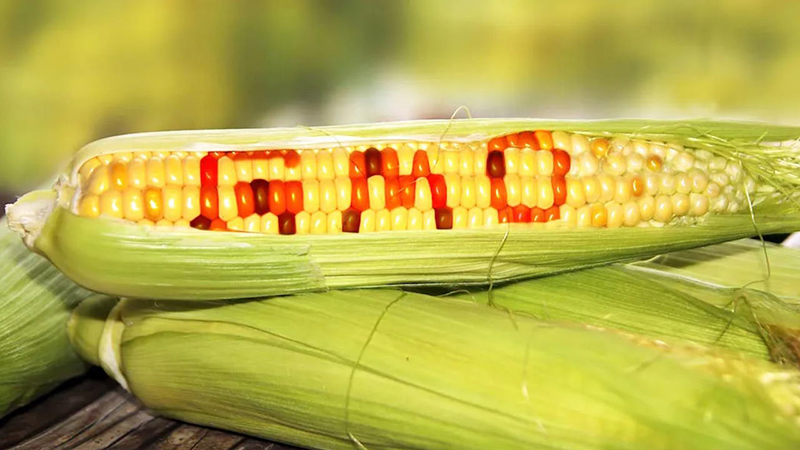US issues dispute panel request, escalates Mexico corn trade spat

The United States on Thursday escalated its objections to Mexico’s curbs on genetically modified corn imports, requesting a dispute settlement panel under the North American trade pact, informed the US Trade Representative’s office.
The request to send the dispute to arbitrators was announced after formal consultations failed to resolve deep divisions between the two close trading partners over use of genetically modified (GM) corn, widely produced by US farmers.
Mexico’s Economy Ministry said it would defend its GM corn policies before the dispute panel, saying on the social media platform X that they “are consistent with trade obligations.”
Washington alleges that Mexico’s decree banning imports of GM corn used in dough and tortillas for human consumption is not based on science and violates its commitments under the US-Mexico-Canada Agreement on trade launched in 2020.
If the panel rules in favour of the US and Mexico fails to comply with its directives, USTR could ultimately win the right to impose punitive tariffs on Mexican goods, which could spark a rare North American trade war.
US Trade Representative Katherine Tai said in a statement that the move was aimed at enforcing Mexico’s USMCA obligations to maintain science-based regulations on agricultural biotechnology.
“It is critical that Mexico eliminate its USMCA-inconsistent biotechnology measures so that American farmers can continue to access the Mexican market and use innovative tools to respond to climate and food security challenges,” Tai said.
Mexico now buys about $5 billion worth of US GM corn annually, mostly for livestock feed. It says biotech corn harms native varieties and may have adverse health effects, an assertion that the US side disputes.
Mexico’s also plans to ban the herbicide glyphosate, which it considers dangerous amid lawsuit settlements with cancer patients despite regulators worldwide determining its safety. Many GM corn varieties are modified to tolerate the herbicide.
Canada’s Trade Ministry, which has sided with US concerns about Mexico’s corn policies, “is considering its next steps,” a spokesperson said, adding Trade Minister Mary Ng “has consistently been clear about the importance of maintaining science-based approaches to biotechnology approvals.”
Corn futures temporarily pared gains at the Chicago Board of Trade after USTR’s announcement as traders worried the spat could threaten US exports to Mexico.
The panel request follows 75 days of formal consultations requested by US officials in June. Mexico has sought US cooperation to jointly conduct scientific research on the health impacts of genetically modified corn, but Mexican officials told on Aug. 3 that their US counterparts denied the request.
“Mexico’s approach to biotechnology is not based on science and runs counter to decades’ worth of evidence demonstrating its safety and the rigorous, science-based regulatory review system that ensures it poses no harm to human health and the environment,” US Agriculture Secretary Tom Vilsack said in the statement.
He added that innovations in agricultural biotechnology to enhance yields also help ease challenges on global food and nutrition security, climate change and food price inflation.
USTR’s decision drew cheers from US corn trade groups and US lawmakers from both parties, who say Mexico’s policies were hurting US farmers.
“US officials have exhausted every avenue trying to resolve this conflict and are left with no other choice but to turn to a third-party panel in hopes of quickly rectifying this issue,” National Corn Growers Association Tom Haag said in a statement. “We are deeply appreciative of USTR for standing up for America’s corn growers.”
Republican Senator Deb Fischer of Nebraska said the move would “hold Mexico accountable and prevent its blatant trade violation under the USMCA.”
Under USMCA’s dispute settlement rules, a five-person panel, chosen from a roster of pre-approved experts, must be convened within 30 days, with a chair jointly chosen and the US side choosing two Mexican panelists and Mexico choosing two American panelists. The panel will review testimony and written submissions and its initial report is due 150 days after the panel is convened.
Previous USMCA dispute panels last year ruled in the US’s favour in a dispute over Canadian dairy quotas, and against the US on automotive rules of origin, siding with Mexico and Canada.
There have been other disagreements between the US and Mexico, most notably over energy in which the US has argued that Mexico’s nationalist policy prejudices foreign companies.
Read also
New palm oil standards raise deforestation concerns
Grains in the Green. Wednesday, December 11, 2024
Palm ends lower on profit-booking and tracking Dalian palm
EU Council approves farmer-focused future common agricultural policy
Malaysia palm oil stockpile to remain low until 2Q 2025 – Aminvestment
Write to us
Our manager will contact you soon



